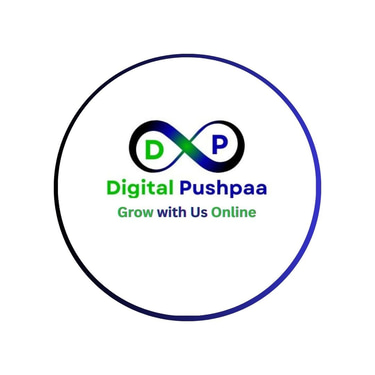Why Social Media Marketing is Essential for Business Success in 2025
In 2025, social media marketing is more essential than ever. Discover how social platforms help businesses grow, engage with customers, and boost brand visibility in today’s digital landscape.
3/5/20254 min read


Title: Why Social Media Marketing is Crucial in 2025
In 2025, social media marketing has become a cornerstone of successful business strategies. With billions of active users on platforms like Facebook, Instagram, TikTok, and LinkedIn, social media has evolved from a simple networking tool to a powerhouse for businesses to connect with their audiences. The influence of social media is undeniable, and it’s essential for businesses of all sizes to embrace this trend to stay competitive. In this article, we’ll explore why social media marketing is crucial in 2025 and how businesses can leverage its power to grow and succeed.
1. Massive Audience Reach
One of the primary reasons social media marketing is so crucial in 2025 is its enormous reach. With over 4.7 billion active social media users globally, platforms like Facebook, Instagram, Twitter, TikTok, and LinkedIn offer businesses unparalleled access to potential customers. Whether you're targeting a local audience or a global market, social media provides an effective way to reach billions of people.
These platforms allow businesses to segment their audience by various factors, such as location, interests, age, and even behaviors. This level of targeting ensures that your marketing efforts reach the most relevant people who are more likely to engage with your brand, making your marketing efforts more effective and efficient.
2. Cost-Effective Marketing Strategy
In 2025, social media marketing remains one of the most cost-effective ways for businesses to promote their products and services. Traditional advertising methods like television and print ads can be expensive, with high costs associated with production, placement, and targeting. Social media, on the other hand, offers businesses the ability to run ads at a fraction of the cost.
Platforms like Facebook, Instagram, and Twitter allow businesses to set their budgets and adjust their campaigns based on performance. This flexibility enables businesses to spend wisely and maximize their marketing budget. Additionally, organic social media efforts, such as posting content and engaging with followers, require little to no monetary investment and can still generate significant results if done strategically.
3. Enhanced Customer Engagement
Social media provides a unique opportunity for businesses to engage directly with their customers in real-time. Unlike traditional marketing channels where communication is often one-way, social media allows businesses to interact with their audience on a more personal level. Responding to comments, addressing customer concerns, and sharing user-generated content (UGC) helps to build stronger relationships with customers.
In 2025, customers expect businesses to be active and responsive on social media. Ignoring customer inquiries or feedback on platforms like Twitter or Facebook can harm your brand’s reputation. On the other hand, engaging with your followers and creating meaningful conversations can enhance brand loyalty, trust, and customer satisfaction.
Furthermore, social media allows businesses to conduct polls, surveys, and feedback sessions, enabling them to gather valuable insights into customer preferences and pain points. This data can be used to refine products, services, and marketing strategies, ensuring that businesses stay aligned with customer needs.
4. Building Brand Awareness and Credibility
Brand awareness is a key factor in driving business growth, and social media marketing is one of the most powerful tools to achieve it. By consistently posting relevant and engaging content, businesses can increase their visibility and ensure that their target audience is familiar with their brand. Social media platforms provide businesses with the chance to showcase their products, services, values, and unique selling propositions (USPs) in front of a large audience.
In 2025, consumers expect brands to be transparent and authentic. Social media gives businesses the ability to showcase behind-the-scenes content, customer success stories, and their corporate social responsibility (CSR) initiatives. Sharing authentic and transparent content helps build trust and credibility, which is essential for retaining customers and fostering long-term relationships.
Additionally, social media allows businesses to collaborate with influencers and other brands, which can further increase brand exposure and credibility. Influencers, particularly micro and nano-influencers, have highly engaged audiences who trust their opinions. Partnering with influencers who align with your brand can help you reach a wider audience and gain credibility in your industry.
5. Real-Time Performance Analytics
One of the most significant advantages of social media marketing is the ability to track and measure performance in real-time. Unlike traditional marketing channels where you may have to wait weeks or months to analyze results, social media platforms provide businesses with instant data on how their content and ads are performing. Metrics like engagement rates, click-through rates, impressions, and conversions can be tracked easily.
In 2025, businesses can use these analytics to fine-tune their social media strategies and optimize campaigns. For example, if a particular ad isn’t performing well, businesses can adjust the targeting, creative, or budget to improve results. Social media analytics also allow businesses to identify trends, understand customer preferences, and see which content resonates most with their audience, allowing for more informed decision-making.
6. Social Commerce and Direct Sales
Social commerce, or the ability to buy products directly through social media platforms, is gaining momentum in 2025. Platforms like Instagram and Facebook have integrated shopping features that allow businesses to sell their products directly within the app, making the buying process seamless for customers.
By combining social media marketing with social commerce, businesses can drive direct sales from their social media content. Customers can browse products, learn more about them, and make a purchase without ever leaving the platform. This frictionless experience leads to higher conversion rates and reduced cart abandonment.
Additionally, social media platforms are increasingly adopting features like live shopping and product tagging, making it even easier for businesses to promote and sell products in real-time.
7. Increased Competition
With more businesses recognizing the power of social media marketing, competition is only going to increase. In 2025, businesses that don’t have a strong social media presence risk falling behind their competitors. Social media has become the primary channel for connecting with customers, and brands that aren’t leveraging these platforms will miss out on valuable opportunities.
By establishing a strong social media presence, businesses can differentiate themselves from the competition and stay relevant in an ever-changing market. Social media allows businesses to build brand personality, engage with customers in meaningful ways, and stay top-of-mind when customers are ready to make a purchase.
Conclusion
Social media marketing is no longer just an optional strategy—it’s a vital part of every successful business plan in 2025. The ability to reach a massive audience, engage with customers in real-time, and build brand awareness makes social media an indispensable tool for businesses looking to grow and thrive in the digital age. By leveraging social media marketing effectively, businesses can boost sales, enhance customer loyalty, and stay ahead of the competition in an increasingly crowded marketplace.
